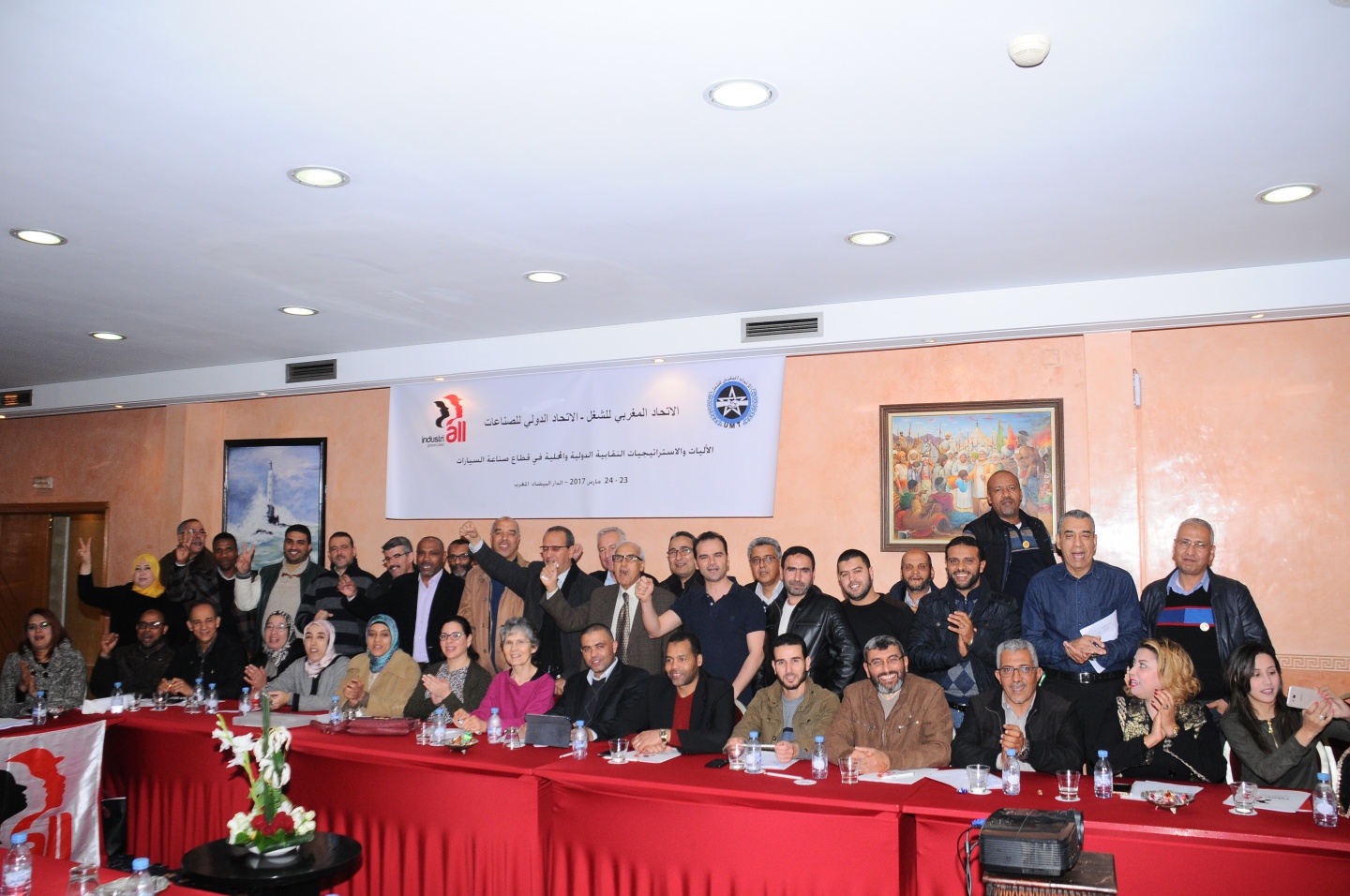Read this article in:
English
- Français
12 May, 2017Automotive and aerospace unions from the Union Marocaine du Travail (UMT) federation met in Casablanca, Morocco, on 18-19 and 23-24 March 2017 and unanimously decided to set up a national metal federation to build power and better advance workers’ rights and interests.
Some 30 union representatives from the auto and auto components sectors attended an IndustriALL Global Union meeting in Casablanca on 23-24 March 2017 to develop an action plan against the backdrop of a rapidly expanding automotive industry. They agreed to establish a national metal federation that would bring together the auto and wiring, electronics and ICT, steel, and aerospace sectors. Preparatory committees were put in place for each of those sectors. The four committees convened their first joint meeting on 1 April in the headquarters of UMT in Casablanca.
The auto industry in Morocco is booming and its supply chain widening fast with the arrival of new players from across the world. With its 135,000-strong workforce, this industry has become the primary export sector and is plays a pivotal role in the country’s development.
The proximity of European markets makes it an attractive sourcing destination for the major auto manufacturers. Besides the Renault factory in Tangier with over 7,000 jobs, PSA Peugeot Citroën is building a plant in Kenitra on Morocco’s Atlantic coast that will go on stream in 2019.
The expansion of the auto sector means that there is great organizing potential, particularly in the key regions of Tangier, Kenitra and the Casablanca industrial zone.
On 20 March, the Moroccan king launched a new industrial city near Tangier to host 200 Chinese companies. The new project aims to generate 100,000 jobs, mainly in the aerospace, automotive, textile and garment industries, with a total investment from China up to US $10 billion over 10 years.
Meeting participants discussed the challenges facing workers. Although the national labour code guarantees freedom of association and collective bargaining, the reality is different and workers’ rights are circumvented in many ways.
A particular issue is the prevalence of temporary work contracts in the sector and company outsourcing policy. Delegates put strong emphasis on the need for information exchange on the companies operating in the country, and for training to improve organizing and negotiating skills to become constructive partners in social dialogue.
At an IndustriALL workshop on 18-19 March on collective agreements in the aerospace sector, 21 UMT aerospace union leaders sector discussed mechanisms and strategies on how to negotiate, improve and expand the scope of collective agreements at company and sector level in Morocco. Union representatives from companies including Anapec, RFM, Bombardier, UMPM, Socaero-Daher, ASM–Aero and Stelia particpated.
The aerospace sector continues to expand in North Africa as unions consolidate power to address workers’ challenges.
UMT leaders expressed their support for the process of creating a national metal federation founded on democratic principles.
Kemal Özkan, IndustriALL assistant general secretary said:
“IndustriALL congratulates our Moroccan sisters and brothers from UMT on consolidating their power under a strong sectoral national structure. This is in line with IndustriALL’s global objective in building union power. This is how we should go about forming powerful unions in the MENA region.”










